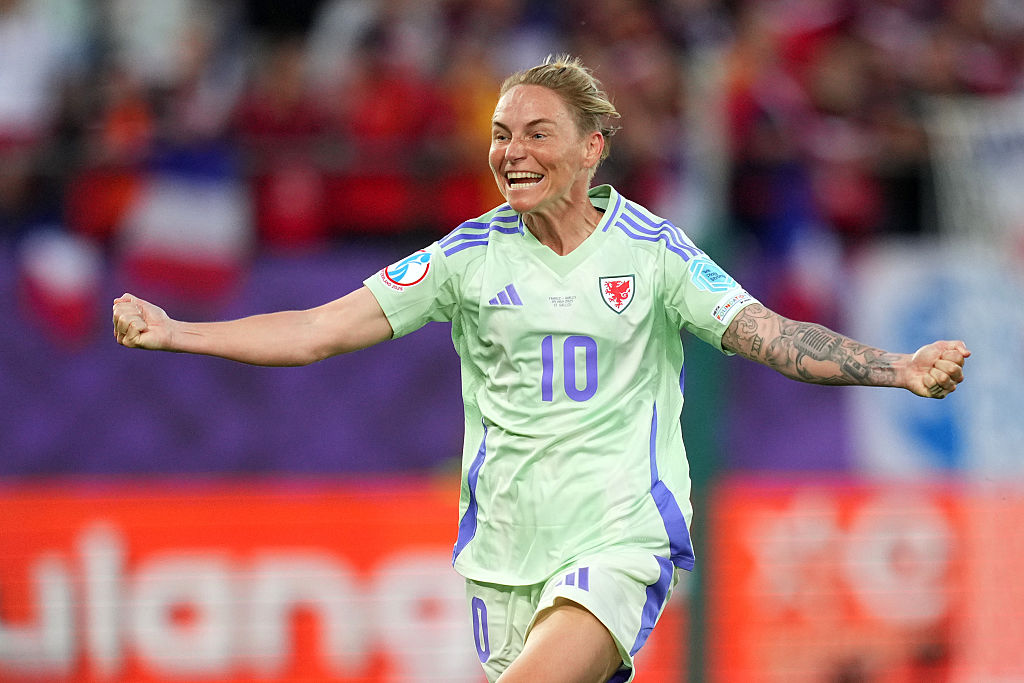You Ask The Questions: Darren Bent – "It was the biggest slap in the face to miss out on England. Theo Walcott hadn't even played for Arsenal in 2006"
Darren Bent wasn't selected for England's 2006 or 2010 World Cup finals, despite topping goalscoring charts. The former Tottenham, Sunderland and Aston Villa striker looks back on his career and why Paul Lambert wouldn't make his Christmas card list
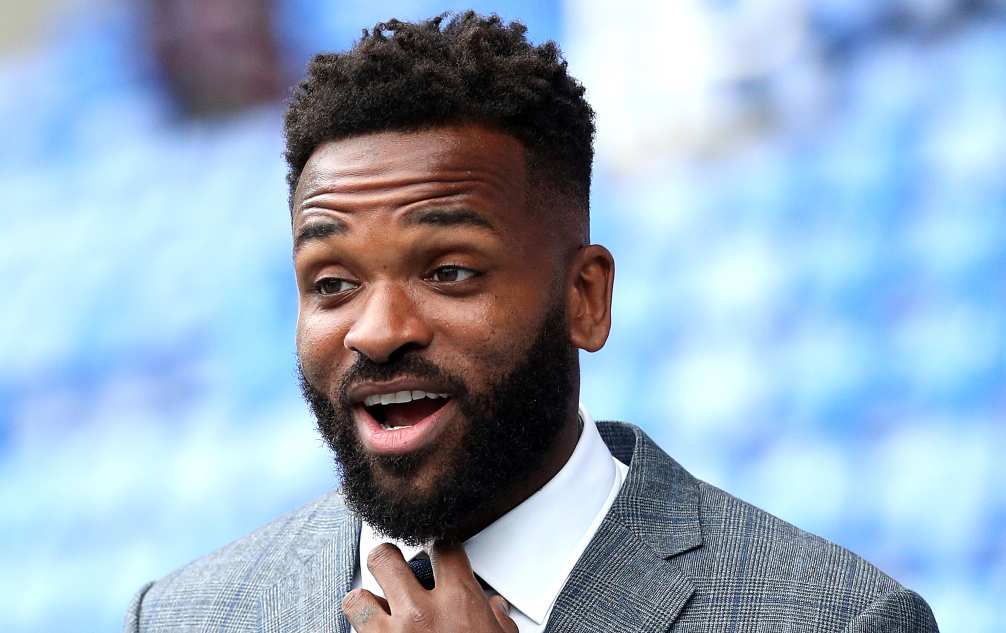
This feature first appeared in the Summer 2021 issue of FourFourTwo magazine. Subscribe now!
At the very moment England begin their Euro 2020 campaign, Darren Bent will spare a thought for the players whose dreams were dashed at the last moment. While the squad prepares for kick-off, others will be sat back at home, disconsolate after missing out on selection for the tournament. Bent knows that feeling all too well: few players have been quite as unlucky as he was.
The marksman netted 106 Premier League goals in his career – 24 of them in a single season, with Sunderland in 2009/10, but even that didn’t earn him a call-up for the 2010 World Cup.
It had been a similar story four years earlier, when the top flight’s leading English goalscorer saw a 17-year-old Theo Walcott go to Germany 2006 in his place, and then play zero minutes. There have been few more surprising selections in English sporting history.
Bent never did go to a tournament with the Three Lions. Now, aged 37 and working as a pundit for talkSPORT, he is ready to reflect on his career and tackle FourFourTwo readers’ questions. As well as those England heartbreaks, he has a few things to say about beach balls, infamous tweets, and the day he was unfavourably compared to Harry Redknapp’s missus…
I met your father once and we had a really good conversation about his time following Chelsea. Are you also a Chelsea fan?
George Downs, via Instagram
No, I’m not! He’s a massive Chelsea supporter, and I remember him taking me there as a surprise for my first ever game. He said, “I’m going to take you somewhere” – I asked if it was Chelsea, and he said no. We were driving over there and I said, “Dad, I can see the floodlights – are we going to Chelsea?” He still said no! I was very young and he managed to fool me the whole way until we got inside the turnstiles.
He’d take me to sit in the Matthew Harding Stand or the Shed Lower, but Ian Wright was my big hero. I grew up in Crystal Palace territory and when Wright signed for Arsenal, I was an Arsenal fan through and through. My dad has been trying to get my kids to support Chelsea. It’s such a joke! Every single birthday and Christmas, it’s full Chelsea kits, Chelsea dressing gowns, water bottles, lunch boxes, pyjamas, pencil cases... he’s trying his hardest!
The best features, fun and footballing quizzes, straight to your inbox every week.
Is it true that you were a good long jumper growing up?
Annabel Parker, Southwold
That is true. I did athletics for England as a youngster and it got to the point where I had to choose one: I couldn’t be long jumping and playing football, because of injuries. I chose football, but I loved athletics as a kid and I still do. Whenever it’s on TV, I’ll always sit down and watch it.
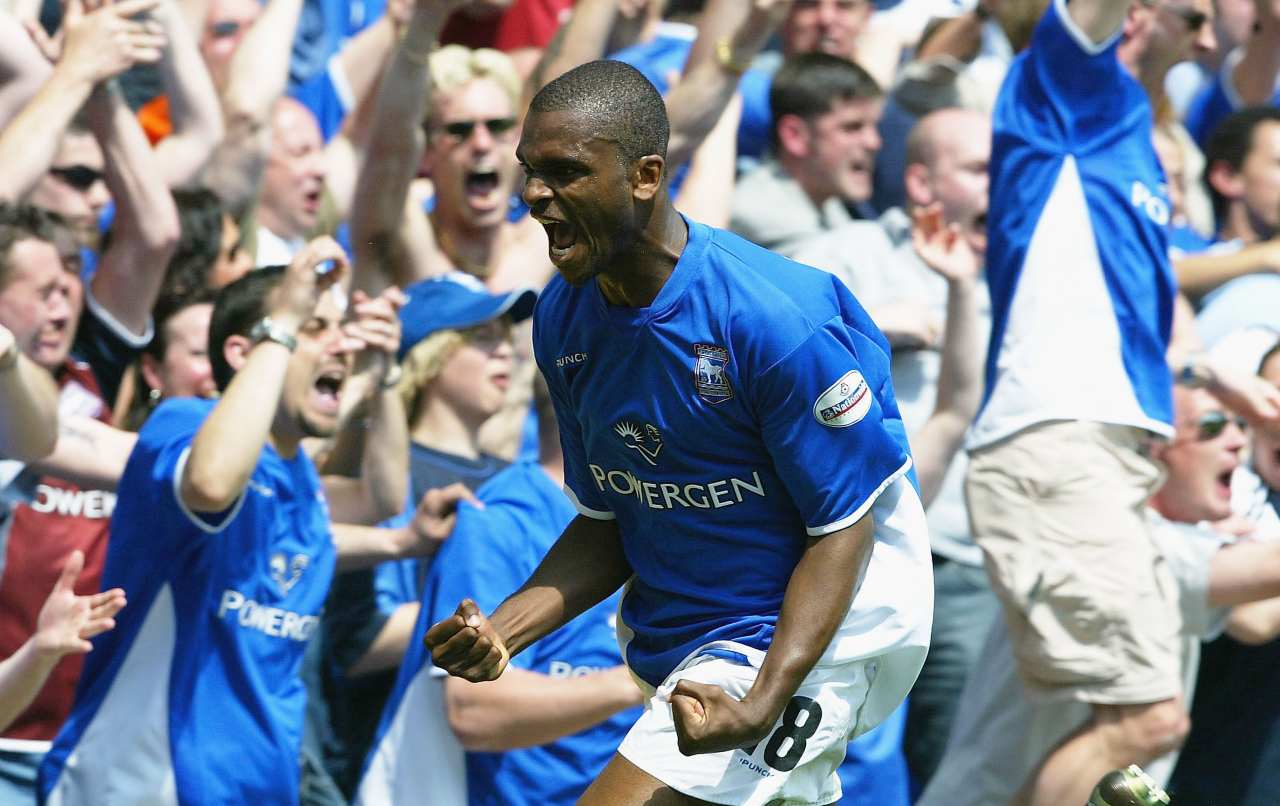
Did you enjoy coming through the Ipswich youth system? How did you find the step up to the first team?
@spursdab, via Twitter
I loved it. Ipswich was perfect for me and I had the perfect manager because George Burley’s motto was, ‘If you’re good enough, you’re old enough.’ I began training with the first team at 16 and made my debut at 17, against Helsingborg in the UEFA Cup – the only annoying thing is that I had an unbelievable chance to score and didn’t bloody take it! They were some of the best times. We played Inter and I travelled with the first team to San Siro, watching Ronaldo come back, and Christian Vieri. And scoring my first goal was an unbelievable feeling, even though we were 4-0 down at St James’ Park! Everything just felt right for me at Ipswich. I still look at that club with very fond memories – Charlton, as well, as I made a permanent step up to the Premier League, scored goals and made my England debut there.
How gut-wrenching was it to be the top-scoring English player in the Premier League in 2005/06, but still miss out on the World Cup squad?
Adam Pavli, via Facebook
Don’t get me started on that… [Laughs] It baffled me. Only Thierry Henry and Ruud van Nistelrooy had beaten me that season, so I thought I had a good chance of going. But then I didn’t and Theo Walcott did. Theo’s a top guy and he turned out to be a top player, but I couldn’t understand it. I don’t think he had played a first-team game for Arsenal; there’s no way he should have gone before me. It felt like the biggest slap in the face from the manager, Sven-Goran Eriksson, when he did that. That was a time when England bosses were selecting players on reputation, maybe, rather than performances.
But the next time hurt more. In 2010 I scored 25 [including one FA Cup goal] at Sunderland and still didn’t go. I was experienced – I’d played in the Premier League all that time, scoring all those goals – so to get left out again hurt me more than the first time. And in 2012 I played really well up until February, then got injured and missed the Euros.
Charlton went down in your second season there – what went wrong?
Aaron Thompson, Greenwich
Alan Curbishley left, which messed us up, then we got ourselves into a bit of bother. I scored a lot of goals that season, but got an injury in January after Alan Pardew came in. I scored in both of his first two games in charge, and won two Sky man of the match awards. He made me captain, but the injury was at a killer time. I came back and scored four goals, but then Spurs came to The Valley, beat us 2-0 and that was it: we went down. I genuinely think that if I could have stayed fit that season, with the way the momentum was going, we could have stayed up.
Why didn’t you sign for West Ham when they had a bid accepted?
Max Lawson, Ilford
Spurs had finished fifth in the previous two seasons, so I wanted to go there. Alan Curbishley was West Ham’s manager and I felt really bad in disappointing him, because not only is he a great manager, he’s a genuinely top man. But I looked at Spurs’ squad, with Jermain Defoe, Dimitar Berbatov and Robbie Keane, and thought that even if I went there and things didn’t go to plan, I’d leave a better player. [FFT: Liverpool were also linked – did you talk to Rafael Benitez?] Yeah, we had a few conversations. He was saying, “Be patient, we’re going to come for you” but then they signed Fernando Torres, which I can understand. Any player would love to go to Liverpool – it wasn’t meant to be.
As a boyhood Arsenal fan, how did it feel to join Spurs?
Alex Foch, via Facebook
When it’s your career and a club like Spurs comes calling, that loyalty to the team you support goes out of the window, because you’ve got a job to do. Some people don’t quite understand that. I hear people say, “I could never have done that”, but that’s them speaking from the outside. It didn’t even cross my mind. [FFT: At the time, did you keep it quiet that you supported Arsenal?] Oh yeah, I didn’t tell anyone... so many people were trying to find out, but I didn’t let on. My mates knew, though – they were saying, “You’re a fake Arsenal fan!”
Arsenal are the one team I’d love to have played for, but it never came close. I always scored against them, and Arsene Wenger always used to say how much he rated me, but for whatever reason it didn’t come about.
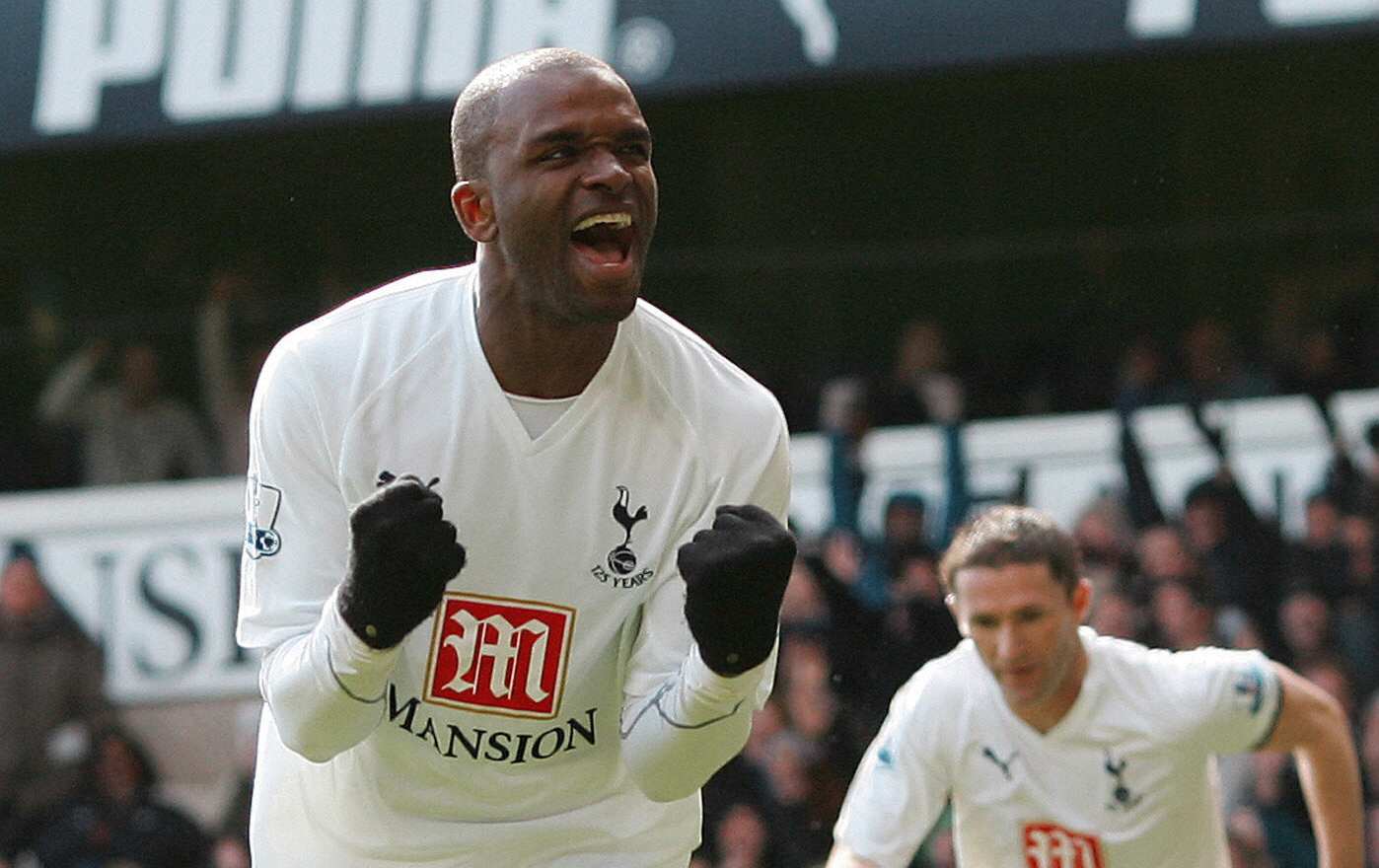
News emerged that Martin Jol was about to be sacked during a game against Getafe – what happened?
Finley Davis, Berkhamsted
That was the weirdest experience ever. At half-time, the players were talking about it. Martin Jol came in, didn’t say that much and walked back out again. I said to Ledley King, “What’s going on – has he been sacked?!” Ledley said, “I think he might have been,” but no one knew – it was really strange. It was a poor thing to do. People say he knew before the match started, because he was quite subdued, but we were trying to concentrate while that was all going on. It was a bit of a circus. I got on well with Martin. He was a good guy; very friendly, a bit like your uncle. A lot of the Tottenham players liked him.
What was it like to come on at 3-2 down against Croatia in 2007, when England missed out on Euro 2008?
Mollie Watson, Chesterfield
It was horrible. We didn’t perform that night, and Scott Carson didn’t have the best of games – I’m really close to him. It was an awful situation to be in, not qualifying for a major tournament. It was hammering it down with rain and the atmosphere was very edgy. I wasn’t playing that regularly for Spurs at the time, and I wasn’t even going to come on – at 2-2, the manager [Steve McClaren] told Owen Hargreaves to warm up. That would have been the third substitution, so I went to take off my boots and socks. But I thought, ‘No, I’m going to wait’ – then Croatia scored their third goal, and I came on.
We played West Ham that Saturday and I think every English player that had been in the squad was getting booed. West Ham fans threw pelters at me and Defoe, warming up on the sidelines. But we let the whole country down. We didn’t qualify, and it was a dark day for everyone concerned.
Was it bizarre to see Juande Ramos sacked at Tottenham, only for a new manager to walk in immediately? Danny Poole, Stevenage Yeah, it was weird. We’d all travelled to a hotel together, then got a phone call to our rooms, saying, “Can all the boys come down for a meeting, please?” It was, “We’ve decided on a change: we’ve parted ways with Juande Ramos, we’ve thanked him for his services... but we’ve brought a new manager in.” Then Harry Redknapp strolls through the door and says, “How are you doing, guys, all right?” It was a bit like what happened when Jose Mourinho took over straight after Mauricio Pochettino.
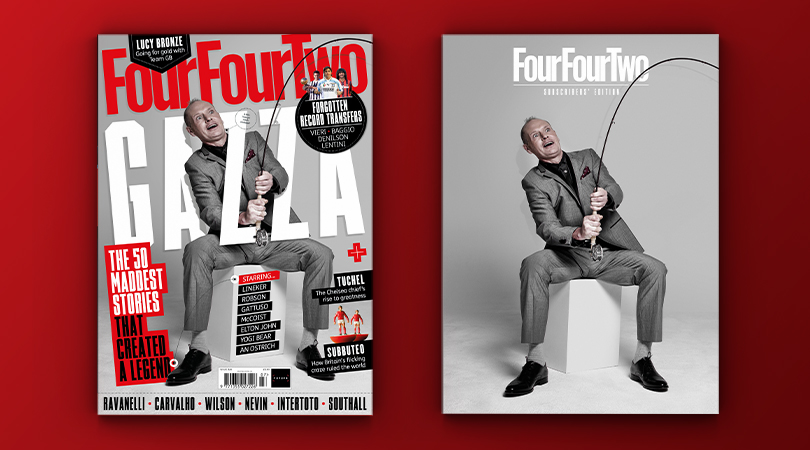
What did you think of all the diet demands under Juande Ramos?
Dylan Elliott, Edmonton
Juande just tried to change too much too quickly – it was too extreme. He removed so many things that players were used to, and it was really tough. Listen, he won us the League Cup, and I understand that continental managers have a way of doing things, and expect everyone to be a certain weight, but it was a real shock to the system. The apple crumble was the one – the moment he removed that, he lost the dressing room! [Laughs] [FFT: Was it similar under Fabio Capello with England?] To be fair to Capello, he had to soften up after the World Cup didn’t go to plan, as he realised it wasn’t working for us. It was strange because he was so bent on saying, “No, this is what we’re doing”, then after the tournament it was as if he went, “I can’t continue this way or I’ll lose the dressing room.” There were a few more options and he relaxed it a bit, because there were things like you couldn’t wear shorts down to the lounge area – you had to wear your tracksuit. It was all too regimented.
Did Harry Redknapp’s “My missus could have scored that” comment affect your confidence at Spurs?
Gillsinthebloodtv, via Instagram
That was just Harry being Harry, but it was still frustrating. While I know he didn’t mean anything malicious by it, people talk about it – we’re talking about it again now and it happened more than 10 years ago. At the time, it bothered me a little bit. It was difficult because I’d missed a chance against Portsmouth that I should have scored and he probably wanted to beat his old club, so it was possibly frustration coming out. Now, if we see each other we laugh about it, but in the moment it wasn’t funny. [FFT: Did that contribute to you leaving Spurs?] I left because I knew Harry wanted to bring in Peter Crouch, and he’d already brought back Defoe and Keane. It wasn’t that he didn’t rate me, because he played me a lot when I was there, but I knew he had other players he wanted. By the end of the season, the relationship between me and him had broken down and I wanted to leave. It worked out well for both of us: the next season, they got into the Champions League and I scored 25 goals for Sunderland.
Before your move to Sunderland, you famously tweeted, “Do I wanna go Hull City? NO. Do I wanna go Stoke? NO. Do I wanna go Sunderland? YES, so stop f****** around, Levy.” How do you look back on that?
Rory Matthews, Lincoln
It was really frustrating because you want to get the transfer done. Harry clearly didn’t want me to stay, I didn’t want to stay and Sunderland wanted to sign me, but I was sitting in limbo not doing anything. At Spurs, I got on the plane for our pre-season tour and said, “Why am I going to China? I’m clearly going to Sunderland.” I had to get off the plane again, but the worst part was that I didn’t sign until Spurs got back. I couldn’t train at Spurs and I couldn’t go to Sunderland, so I was sat in my hotel room, doing absolutely nothing. I felt like they were trying to railroad me into going to Stoke or Hull, but I’d already spoken to Steve Bruce and I wanted to play for him. I haven’t seen Daniel Levy for a long time, and if I saw him now we’d probably catch up and get on well. But at the time, he had to understand my frustration.
#OnThisDay in 2009, @DarrenBent joined @SunderlandAFC ⚽️Games: 58Goals: 32Including *that* beachball moment 😉 pic.twitter.com/iCC4NfbfKGAugust 5, 2017
How were you able to score so many goals at Sunderland?
Matt Wilkinson, Washington
I think it was hunger, motivation and determination. Because of what had gone on at Spurs, I wanted to prove a point. People questioned Sunderland signing me and asked whether I could still do it, but Steve Bruce simply said to me, “Use it as motivation.” That’s what I did. Everything just fell into place and I loved it. [FFT: You played Spurs, scored twice and missed two penalties in a 3-1 victory…] I was desperate to do well in that match – it was the probably the most pumped up I’ve ever been in my life. I’d played against them at White Hart Lane and missed a penalty as we lost. Then we played them at home and I scored two goals early on, got a penalty and missed, then got another penalty in the second half and missed that. I could have walked off with four!
The beach ball goal against Liverpool – did you mean it?
@ScouseCxfu, via Twitter
[Laughs] Yeah, I saw the beach ball on the pitch and I aimed for it… Like the Harry comment, the beach ball goal is something that everyone will always bring up, because it will never happen again. I didn’t mean to do it – I didn’t even know it was there. All I wanted to do was hit the target and score, and I managed to do that. I will take absolutely any goal! It was a crazy thing to happen, so I’m a little part of some strange Premier League history.
Your first England goal came five years after your first call-up. What did scoring it mean to you?
Aiden Webb, Stourbridge
It was massive, because you thought, ‘How long can this go on for?’ It took five years, and I scored that goal in a period when I started playing more regularly. Before that, I was in and out of the squad; I travelled all over the place and didn’t get off the bench. It was quite disappointing, as I believed I could have had more caps and more goals. It’s so hard when you’re in and out. Getting that first goal – against Switzerland – was validation, finally. The first one is always the hardest. I went on quite a good run after that, scoring in my next two internationals. It was brilliant to score against Wales at the Millennium Stadium, because a lot of people were wondering, ‘Who’s going to play?’ Some were saying they wouldn’t mind seeing Andy Carroll play. But Capello came to me in the morning and said, “You’ve been excellent for us in the last few internationals, so you’re going to start – don’t think otherwise.” It gave me so much confidence. He’d left me out of his World Cup squad, but in the next squad he put me in, he said, “I made a mistake. I apologise. From now, you are my No.9.” He was true to his word, too.
Why did you leave Sunderland at the peak of your powers?
Rhys Saunders, via Facebook
I looked at the squad we had, and even though we were sixth after some big results, we weren’t playing that well. I looked at Villa’s squad and thought, ‘They’re underachieving’. Ashley Young, Stewart Downing, Stiliyan Petrov, Nigel Reo-Coker... I just felt their squad was better. I can understand why people would ask the question because they are correct, I was at the peak of my powers – but it felt right to go to Villa. If Sunderland didn’t want to sell me, they would have said I wasn’t going anywhere, but they wanted to cash in.
Shortly before I signed the contract, Sunderland said, “You need to hand in a transfer request or there’s no deal.” I would never do that, but they told me to get the fans off their back and onto mine. That tarnished my relationship with the fans – it put all of the blame on me. I got destroyed by them and came off social media for a long time.
You made sure Villa stayed up when you arrived. Do you have any regrets about the rest of your time there?
George Sneddon-Coombes, via Instagram
No – when I first got to Aston Villa, it worked out really well. We had such a good team but then sold everyone: Young, Downing... many good players. The first part of my time there – under Gerard Houllier and then Alex McLeish – was brilliant, but under Paul Lambert it was awful.
Why did Paul Lambert remove the captaincy from you in 2012? Did your relationship go downhill from there?
Craig Perkins, via Instagram
Yeah, completely. I don’t know what the issue was there – we didn’t get on, but why, I don’t quite know. I think he wasn’t a very good man-manager, he couldn’t deal with lads who had egos and big reputations, and we just didn’t see eye-to-eye on anything. It wasn’t a good time at all. The worst part was that he had already told Ron Vlaar, his new captain, a week before. It showed what kind of a man he was. We didn’t get on and I don’t particularly like him now – he was at Ipswich and nearly ruined my club. I’m sure if we spotted each other in the street, I would carry on walking past him.
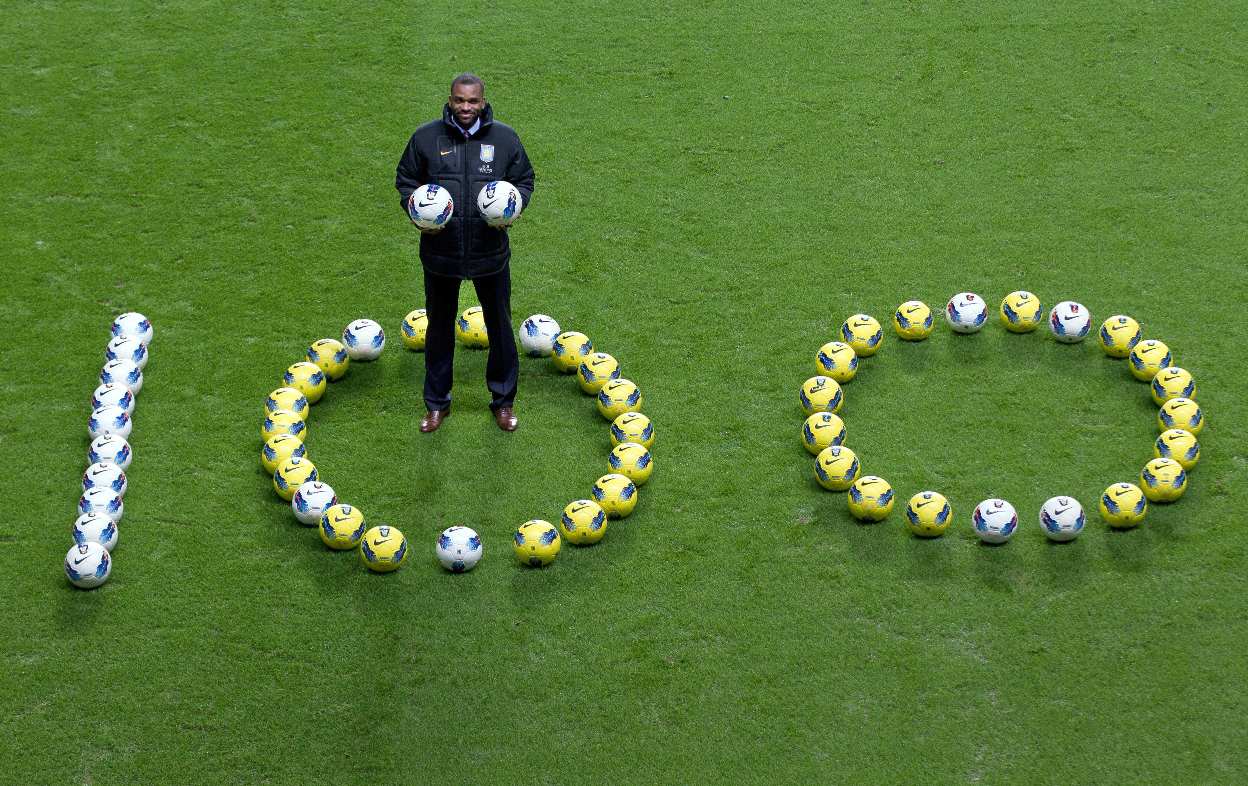
How did it feel to reach 100 Premier League goals at Aston Villa?
Kieran Williams, Bromsgrove
It was validation for me. When you get to 100 goals, no one can really say to you, ‘You didn’t score enough goals.’ No one can take that away from you. When you look at some of the players who have scored 100 Premier League goals, to be in that company is superb.
Which young player impressed you most during your career: Gareth Bale, Jordan Henderson or Jack Grealish?
Zain Barker, Tamworth
Grealish was quite young back then, but still a good player. I think, out of the three, probably Jordan Henderson, just because of his work ethic and how hungry he was to do well. I’ve never seen determination and drive like it. He knew what his limitations were, but he wasn’t going to let that affect him. Look at him: he has turned out to be one of England’s main men, one of the most influential captains in Liverpool’s history, and a really good guy as well. I’ve played with a few youngsters that probably had more ability, like Bale with his left foot, but for the all-round package it was Henderson.
You linked up with Martin Jol again during a loan spell at Fulham in 2013, and kicked off the campaign playing alongside Dimitar Berbatov. Why did the club get relegated?
Andy Edwards, Wandsworth
We had good players, but I wasn’t fit enough – Paul Lambert had pretty much banished me to another dressing room, so I didn’t get to have a proper pre-season. The training equipment was flat, we didn’t have any balls and I got completely pushed to the side, so by the time I got to Fulham, it took me ages to catch up. We just didn’t get off to a decent start. We struggled, and we had three managers: Martin went, then it didn’t work out with Rene Meulensteen, and then it didn’t with Felix Magath, either.
We’ve all heard about Felix Magath encouraging Brede Hangeland to use cheese to help his injury – are there any other unusual Magath stories?
Jack Morgan, via email
That was the maddest one, because as players nobody could understand it. Cheese? Why would you put cheese on your leg? I understand that he had a different mentality to us, and he was a proven winner in the Bundesliga, but for whatever reason it just didn’t work with us. Again, he was one of those managers who maybe tried to change too much too quickly. It was, ‘Right, we’re going to do this, this, this and this,’ and the players were like, ‘Whoa!’ We had senior players such as Brede, Scott Parker and John Arne Riise, and he tried to treat them like kids. He was a really nice bloke, but in terms of his man-management methods with the squad we had, it didn’t work.
Was it disappointing to have to drop down a division in 2015, moving to Derby in the Championship when you perhaps still had more to offer in the Premier League?
Kurt Lewin, via Twitter
Yeah, of course, but I was never one who wanted to sit there and not play, regardless of what division I was in. I decided that I would rather go and play for Derby than sit on Aston Villa’s bench – and Lambert wouldn’t even have had me there. I would have been sitting in the stands just for the sake of it, and I was never going to let that happen. Steve McClaren had offered me a lifeline at Derby and I’ve always got on very well with him. I grabbed it, but then he left for Newcastle a few months later, which was another killer. Steve’s a really good guy, though, and a really good coach.
Was it at all awkward when Harry Redknapp suddenly arrived at Derby as a football adviser?
Ellen Stewart, Uttoxeter
We laughed about everything when he came in. I know he’s said before that he was thinking, ‘Benty will be in the dressing room, slagging me off’, but it wasn’t like that. The first time I saw him, we had a laugh and there was no ill-feeling. I don’t really hold grudges.
How did it feel to be relegating your old club, Sunderland, to League One during your time playing for Burton?
Ollie Tinker, via Instagram
I always got pelters whenever I went back there to play. It was such a toxic environment, going there with Burton, and that was difficult to take because my relationship with those fans had been superb. I always used to say that if I went back there and scored, then I wouldn’t celebrate, but the amount of stick I was getting... you just lose control. I was booed in the warm-up and while getting off the coach. It was a crazy and hostile environment. When I scored, the emotion got the better of me, and that’s why I celebrated. I felt sad for them getting relegated, but at the same time I felt, ‘Well, have that... you deserve it’.
Who was the toughest defender you ever had to play against?
Roberto Perdoni, via Facebook
The hardest defender in the Premier League was Rio Ferdinand, because he could read the game incredibly well and was really intelligent, quick and strong. Worldwide, Sergio Ramos was pretty hard to play against. He also reads the game well and was tough, strong, aggressive... just an excellent all-round centre-half.
Was retirement hard for you? What is that adjustment like?
Fernando Revilla Lima, via Twitter
For me, the transition wasn’t too bad, because I’d been doing a lot of media stuff already. The difficulty when you retire is that you’ve got to figure out some things to do, but I went straight into the media. I thank my lucky stars that I was able to retire and move into another career, as a lot of people don’t get that luxury.
How have you found it, crossing the divide into punditry? When you were playing, were there any pundits you liked or didn’t like?
Martin Banks, via email
Pundits are there to give their opinions – there are going to be some that rate you and some that don’t. No one likes getting criticised, whatever they might tell you. When somebody says you’re not playing well, you hate it, but that’s all part and parcel of it and now I’m on that side. I’m having to do it. I don’t particularly like criticising, but if I want a career in this then I’ve got to do it.
Looking back, how do you feel about the way your career went?
Oliver Bradley, Wycombe
Extremely proud. You always feel you could do more. You always wish there had been more opportunities. There’s not one player out there that thinks, ‘I did enough’. You always wish that you could have achieved more, and I’m certainly the same – I think there was definitely more to give. But it doesn’t always work out that way. I’m proud of what I achieved, and I’ve been given an opportunity now to start a second career. Hopefully it can turn out half as well as the first one.
Darren Bent is a regular on talkSPORT Breakfast, and also presents Darren Bent’s Boot Room on Sunday evenings
NOW READ
YOU ASK THE QUESTIONS Ole Gunnar Solskjaer
RANKED! Euro 2020: England's Euro record
RIO FERDINAND "I was so happy that Edwin van der Sar saved Anelka's penalty in 2008... I was next and wouldn't have scored!

Chris joined FourFourTwo in 2015 and has reported from more than 20 countries, in places as varied as Ivory Coast and the Arctic Circle. He's interviewed Pele, Zlatan and Santa Claus (it's a long story), as well as covering the World Cup, AFCON and the Clasico. He previously spent 10 years as a newspaper journalist, and completed the 92 in 2017.
